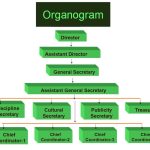These days, the argument concerning the wealth of an African country varies in angles, and every point of view seems valid. Most thinkers base their arguments concerning the wealth of a nation on its GDP and material resources. In contrast, others base their argument on the standard of living of the country.
Surprisingly, others use the stability of government policies and maintenance of law and order in the country as the basis for examining the wealth of a country.
These arguments keep lingering and wouldn’t stop anytime soon. Still, the fact remains that each arguer’s angle through which he examines the nation’s wealth is valid to some extent and gives us a preamble of how to evaluate the wealth of a nation.
A wealthy nation should have a high GDP, a considerable amount of material resources, stable government and good policies. This in return influences its standard of living.
Thus, each angle through which the wealth of a country is measured rubs on each other and significantly influences each other.
Table of Contents
What do we mean by the Phrase ‘Richest country in Africa’?
Africa is an enormously large continent with vast resources; if harnessed adequately, these resources could put most African nations on the front of world power and make them a force to reckon with.
However, the ranking of the wealthiest countries in the world today and mainly in Africa, has exposed the fact that the richness of any country is not only about the quantity or quality of resources it possesses, but about harnessing these resources and the total value of goods and services produced annually(GDP).
This primary reason brings to play the cause behind Africa’s poverty rate, even with its enormous resources.
A practical example can be seen in countries such as Niger Republic, ranked 4th in the production of uranium in the world and with many other resources such as coal, gold, limestone gypsum, and silver, Niger Republic still possesses a low GDP of $15 billion making it one of Africa’s poorest countries.
Other countries like South Sudan, Botswana, and Chad possess vast resources that could be harnessed and processed to boost their economy. But, due to corruption and other factors, African countries remain below the poverty line regarding GDP per capita and economic growth.
Thus to determine the wealth of any African country, we need to know the GDP of the country, which is the most reliable method for examining the wealth of that country.
Before drawing the curtain on this article, we’d list the top 10 richest countries in Africa, the GDP resources each possesses, and what they do to attain such a position.
Read also:10 Reasons African Tech Startups are failing (with examples)
Top 10 Richest Countries in Africa
-
Tanzania – $67 billion GDP
Tanzania has abundant natural resources, which they use in trading and a vast volume of exports from the country.
It’s the world’s leading producer of sisal and the biggest producer of rice in the East African region, making about $1 billion from cash crop export. Agriculture represents about 32.4% of its GDP
Other resources of Tanzania are natural gas, whose reserves are in a considerable commercial quantity. Presently Tanzania GDP per capita stands at $1,099 which makes its standard of living relatively better.
-
Ivory Coast – $70 billion GDP
Also known as côte d’Ivoire, it is one of the biggest agricultural markets in Africa. It exports many agricultural products to other countries, of which cocoa is the primary export making her the world’s largest producer of cocoa and second largest producer of cashew nuts in the world.
It has a GDP per capita of $2, 646 making it one of the highest in Africa
Other natural resources of the Ivory Coast are cobalt, rubber, diamond, timber, copper, and oil gas.
-
Ghana – $77 billion GDP
Formerly known as the gold coast, Ghana is one of the significant fields of gold in Africa and the sixth largest in the world. Ghana has a GDP per capita of $2, 374 making it one of the African countries with a high standard of living.
Ghana possesses mineral resources like diamonds, manganese, bauxite, and mica. Cocoa is the main cash crop, and Ghana is the second largest producer of cocoa in the world after Ivory Coast.
Read also: Top 10 most developed countries in Africa.
-
Kenya – $110 billion GDP
Number seven on the list is Kenya, having a GDP per capita of $2081.80. It is one of the countries in Africa with a high rate of hospitality and tourism. Kenya has many mineral resources such as soda ash, Titanium, ore, and vegetables.Coffee is its largest foreign exchanger.
Kenya is the world’s largest producer of pyrethrum and 3rd largest producer of tea & coffee and fresh produce such as cabbages, onions, and mangoes.
Its flower exports are in high demand and make up 30-36% of Europe’s flower auction.
-
Ethiopia – $111 billion GDP
Ethiopia is one of the most rapidly developing countries in East Africa. It has a GDP per capita of $925, and agriculture accounts for 36% of its GDP.
Its maize production is the second largest in Africa, and livestock production in Ethiopia is believed to be the largest in Africa, culminating in about 6% of its export income. Tourism is also said to be one of the important factors affecting its growth.
Other resources found in Ethiopia are niobium, gemstone, soda ash, rock salt, and tantalum, contributing to 10% of its GDP.
Read also: How to boost Intra-African trade.
-
Morocco – $142 billion GDP
Mining and industries comprise one-third of Morocco’s GDP, while Agriculture accounts for 13%. Morocco is the world’s largest exporter of hashish and phosphate, 3rd largest exporter of Tomatoes and raspberries, and 4th largest exporter of blueberries.
Fertilizers represent the fastest of all exports and account for over 18.2% of its total export.
Morocco is also ranked the best place for mining investment in Africa and enjoys superior infrastructure due to its proximity to Europe and North America. It has a GDP per capita of $3, 795.38, one of the highest in Africa.
-
Algeria – $163 billion GDP
Officially the largest country in Africa and the largest member country of the OPEC organization. Its economy is dominated by the oil and gas sector, which accounts for 19% of the country’s GDP.
Algeria is one of the major producers of crude oil in Africa
Its natural gas is the largest in Africa, accounting for 50% of Africa’s gas production, and also the 4th largest exporter of gas globally.
Other leading industries include agriculture which culminates in 13.3% of its GDP; watermelon dominates the agricultural sector making Algeria the leading producer of watermelon in Africa and 6th in the world. Algeria has a GDP per capita of $3690.63
What do you think about being in a community of young Africans who are rising fast in their fields and growing to become changemakers? Join us here, if you wish.
-
Egypt – $404 billion
Third biggest economy in Africa, Egypt has positioned itself as a force to reckon with in the continental space. Egypt’s economy thrives on two significant aspects, industrialization and agriculture.
On the aspect of industrialization, Egypt is known to be the largest producer of steel in Africa and 2nd most prominent in the middle east. Its crude oil production is the 5th largest in Africa, with the 2nd highest refinery capacity.
Agriculturally, Egypt has thrived in the sector more than most African nations, and this is due to the endowment of the River Nile.
Its big agricultural market has made Egypt the world’s leading exporter of long-staple cotton, dates, and oranges; it also ranks second in the exports of figs, third in the exports of onions, and fifth in the exports of raw potatoes globally.
Egypt’s relationship with other middle eastern countries also plays a part in advancing its economy. Currently, Egypt has a GDP per capita of $3698.83.
-
South Africa – $419 billion GDP
The economy of South Africa is the most industrialized and technologically advanced in Africa. Gold remains the most important mineral in South Africa, and its gold refinery is the biggest in the world.
South Africa is the world’s leading exporter of gold, platinum, vanadium, manganese, vermiculite, and chrome. South Africa is also the second largest Ilmenite, palladium, and rutile producer globally.
Its ability to generate two-thirds of Africa’s electricity and mine deeper than all other countries makes her a driving force in the world economy. South Africa’s economy is also diversified.
Agriculture-wise, South Africa is the second largest exporter of fruit globally, the largest exporter of Macadamia nuts, and 4th globally in producing Chicory roots and grapefruit.
Cereal (5th largest) and maize (7th largest) make South Africa a significant exporter in the world’s agricultural sector. South Africa’s GDP per capita of $7055.04 is the 4th highest in Africa.
-
Nigeria $504 billion GDP
The giant of Africa, as one may rightfully say, Nigeria is one of the most influential on the planet. It has abundant resources and is currently the biggest market in Africa, with a population of over 200 million people.
Agriculturally, Nigeria has a workforce of 35% of the national employment size and has made many thrive in the sector, which are listed below;
- The largest producer of Yam globally, with an account of over 70-76% of world production in Yam.
- The leading producer of Cassava, Taro, and African catfish globally.
- The biggest producer of Rice, Sorghum, and maize in Africa
- 2nd leading producer of okra globally, 3rd leading producer of sweet potato, peanut, and ginger, 4th largest producer globally in millet, palm oil, sesame seed, and coca, and 5th largest in plantain production globally.
Industrially, Nigeria has the second-largest refinery in the world and the largest in Africa. Its crude oil and hydrocarbon production is the largest in Africa and the 11th largest in the world, and it also has the largest natural gas reserve in Africa, accounting for 206.53 trillion cubic feet.
Nigeria’s GDP per capita is $2065.75.
Conclusion
More than half of the resources in many African countries are unutilized or grossly misappropriated, which greatly slowed these countries’ economic growth rate. African nations can always do more and be better than their present economic state if they learn to utilize their enormous resources.
If Africa can pay more attention to harnessing her resources, then in no time, Africa will be the driving force in the world’s economy and subsequently emerge as a world power.
So you won’t miss out on any of our latest posts, subscribe to our newsletter.
About Author
- An SEO Content writer with dedicated 4 years experience. I have expertise in typically researching for topics, creating style guides for a company's content, and writing content that helps drive conversions based on the organization's goals.
Latest entries

 CareerFebruary 1, 2024Creating a Company Organogram/Organizational Chart: All You Need to Know
CareerFebruary 1, 2024Creating a Company Organogram/Organizational Chart: All You Need to Know CampusNovember 19, 2023Tuition-Free Universities in Germany: Relocating to Germany Through Study Route
CampusNovember 19, 2023Tuition-Free Universities in Germany: Relocating to Germany Through Study Route Business InsightsSeptember 15, 2023Top 20 Easy-to-Sell Courses on Expertnaire
Business InsightsSeptember 15, 2023Top 20 Easy-to-Sell Courses on Expertnaire

